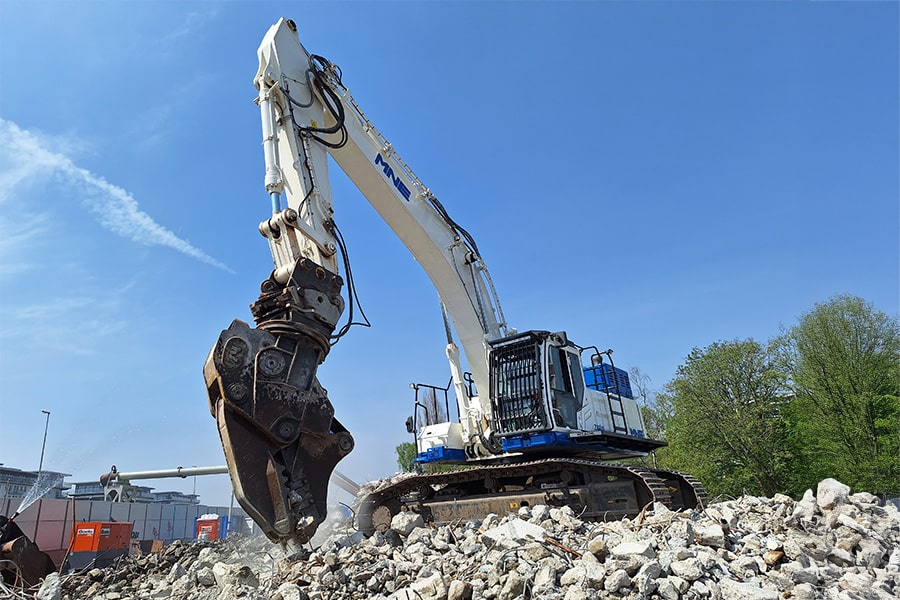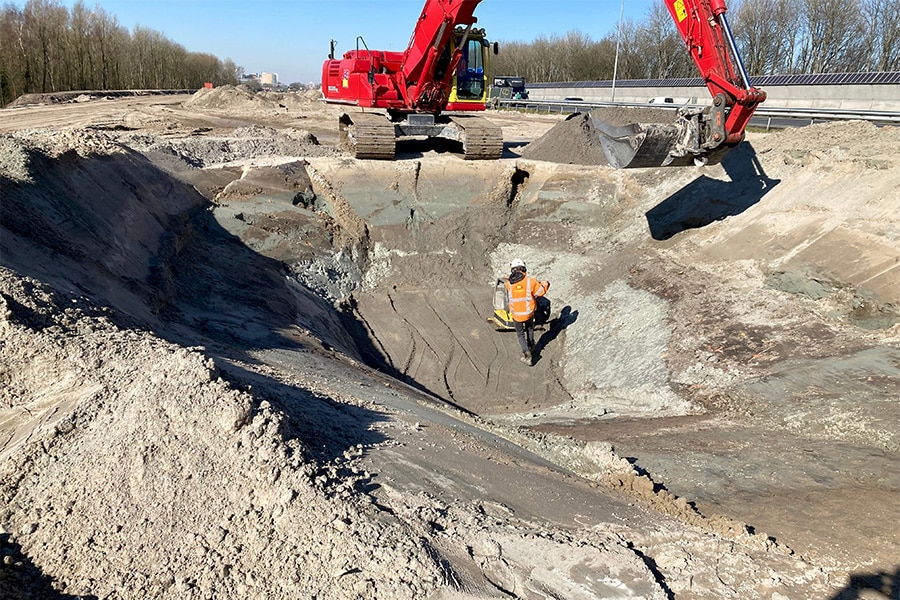
Asphalt industry moves to meet climate goals
New AKC director Ralph Venema
As of March 1, the Asphalt Knowledge Center (AKC) has a new director. Ralph Venema earned his spurs in the bitumen industry, so he knows the challenges facing the asphalt industry. "We are an incredibly polluting industry and addicted to fossil resources. According to the Paris climate agreement, we have to meet the first climate targets as early as 2030. I am convinced that we will succeed. After all, there are plenty of organic alternatives."

The Asphalt Knowledge Center (AKC) is an alliance of SME asphalt producers. It is formed by twelve companies with their own asphalt production sites throughout the Netherlands. The organization's goal is to make knowledge accessible to its members. Large contractors have in-house research capabilities that smaller companies lack. The Asphalt Knowledge Center ensures that knowledge can be shared but that smaller companies also have more research opportunities. And the AKC is doing that energetically. Venema: "The asphalt industry is like a supertanker. If you want it to take the turn necessary to meet climate targets, it will take years. Since AKC was founded, we have been working - together with knowledge institutes like Wageningen University and Utrecht University, but also with TNO - to look for alternatives to fossil raw materials. And there are. In a previous job, I was working as early as 1996 to find ways to rejuvenate asphalt. Our research fits perfectly with the ambitions from the climate agreement."

Alternatives
The alternatives are available, believes the new AKC director who will take over from Paul Landa who will retire in three years. "As long as you want to see them. And I want to. Because I think pioneering and trying things out is perhaps the best part of my job. Society expects us to change. And that role suits me well."
Bitumen, the most commonly used binder in asphalt, is made from petroleum. "And petroleum is basically nothing but compressed plant residues," Venema argues. "Then surely it should be possible to produce a binder that has the same kind of composition?"

AKC, its shareholders and cooperating knowledge institutes have been experimenting with lignin for a few years for that reason. Venema: "That is the 'glue' in everything that stands upright in nature. It is a natural organic compound, more specifically a biopolymer, which occurs in the cell wall of various types of plant cells, such as in cells of wood. Throughout the Netherlands we have already run many pilot projects using asphalt with lignin as a binding agent."
The product, applied by AKC shareholders under the name Lynpave, is produced at a temperature 30-40 degrees Celsius lower than in the production of regular asphalt. Venema: "For one asphalt mill, that already saves 230 cubic meters of gas that you have to burn less. And there we save no less than 500 tons of CO2 emissions. In total, we have already processed 500,000 tons of Lynpave on provincial roads."
Venema is therefore convinced that the asphalt industry is going to meet the climate goals. "At my previous employer we used a new biological binder. We started with 26% addition, later scaled up to 45% and I know one is already at 100% there now. So organic asphalt is just there. It looks perfect and meets all the requirements."



